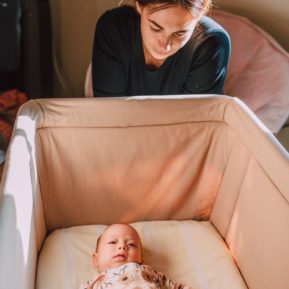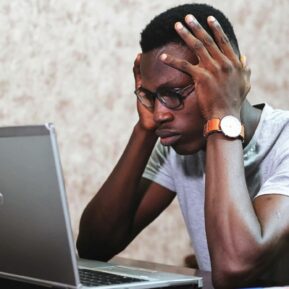It used to be associated with high powered jobs and burning the candle at both ends, but ‘burnout’ is now being felt by more and more parents, as they try to juggle career pressures alongside busy family lives – more so since Covid hit.
Being a working parent can feel like never-ending cycle of childcare, rushing through work to pick up children, more childcare, catching up on work you didn’t finish, sleep, before it starts again. And stay-at-home parents don’t have it any easier, often feeling like complete responsibility for both home and children rests squarely on their shoulders.
The pandemic has been particularly tough on parents; from looking after newborns without outside support, to home-schooling alongside a job. And even as we (hopefully) reach the other side of the Covid crisis, a recent survey by the charity Action for Children found that more than four out of five parents (82%) are still struggling with at least one of the warning signs of parental burnout. The charity found many of the 2,000 parents surveyed felt like they were “drowning” and “isolated”, and other symptoms included anxiety, disruption to sleep, depression and overwhelming mental exhaustion.
What’s the difference between tiredness and burnout?
It’s the degree of tiredness, so if you take tiredness along a spectrum, then being burned out is an absolute, emotional and physical, exhaustion. And it’s not an exhaustion that might be helped by, say, going on holiday or having really good night’s sleep. It’s the build up of fatigue and stress and the impact of those things.
There are cognitive implications too; parental burnout can come with loss of fulfilment, a sense of disillusionment about where you’re at, a distancing from people who are important to you – and, as a parent, that can be really distressing if you feel distanced from your partner or children.
It can lead to a loss of self-esteem, where you feel as if you’ve lost who you were, particularly if you compare yourself to the parent you were pre-burnout, which can lead to mood and anxiety conditions.
Then you can also have physical symptoms like disrupted sleep, disrupted eating, some people will increase substance misuse to try and cope – those sorts of things are what’s called burnout syndrome. One step further than burnout, it’s where people really have come to a halt.
Its a bit like having a system and sending a massive charge of electricity through it and inevitably you may well have a fuse that then tends to blow. Comparison, of course, makes things worse – if you think other parents are juggling a lot too and (seemingly) coping.
The pandemic-effect
Covid-19 has impacted everyone in very different ways. For some people it was actually an opportunity to have a break and reconnect with family, for others it caused them an enormous amount of juggle. For those without much practical support from their partner, single parents or parents of children with additional challenging needs, the stress may have been much greater.
When we first experienced the pandemic, one of the first actors it influenced was our sense of safety. Safety is a raw, human need – if we don’t feel safe, our anxiety levels absolutely zoom up. Parents in particular, because of the added layer of responsibility, would have gone completely into overdrive.
On top of that, boundaries collapsed because of home-working. Parents were taking on multiple roles to educate and entertain their children, as well as do their own work and roles as we knew them disappeared. Structure creates safety as well, so does having goals and predictability, so for parents, the lack of a sense of safety – and their inbuilt responsibility to provide that – was really impactful. It’s no wonder then, that parents are still feeling the effect of it long after we’ve come out of lockdown.
How to start getting back on track
The first step is to take stock of what’s happening. I do think it’s really, really important to acknowledge what you’re feeling. Because if you are experiencing burnout then, even with the best of intentions, you’re not going to be able to deliver what you want to do.
See yourself as an athlete who’s had an injury. There’s no point in saying, 'I’ve got to go and play that match’ – you’ve got to let the wound heal, you’ve got to set it right.
Next, examine how it’s affecting you in terms of food intake, sleep, energy and your thought processes, and get some help, whether that’s telling someone close to you that you’re feeling exhausted or seeking some [professional] support. I do think that’s always good because it’s hard to get perspective and it's hard to feel more positive when you’re feeling like this. See someone who can support you while you start to revive yourself again.
Try and rebalance some of the things that might have gone out of balance. So if you were overstretching yourself to do a lot more of the education side of things, or if you’ve taken it upon yourself to help everybody get back on track in some way, can you now start to withdraw that? Can you start to get a bit more of a balance, between what you’re offering and what you want for yourself?
Isolation is a key symptom and effect of parental burnout, so reach out to friends and try and carve out some time for those relationships. Our social connections are such resilient factors, so reach out, reconnect with friends, share some of the challenges you might all be going through and see what you might be able to do to support each other.
If you need more tailored support, please contact me to make an appointment and I will gladly discuss how I am able to help.
Sign up today for unlimited access:
- Book appointments
- Expert advice & tips
- Premium videos & audio
- Curated parenting newsletters
- Chat with your bloss community
- Discounts & competitions
- Special events





Leave a Rating / Review
You must be logged in to post a comment.